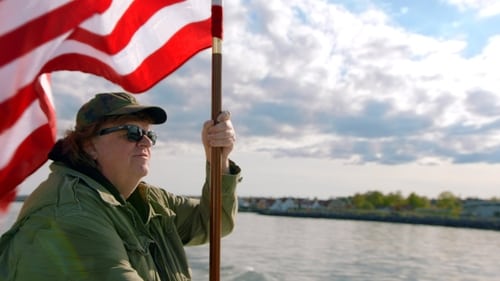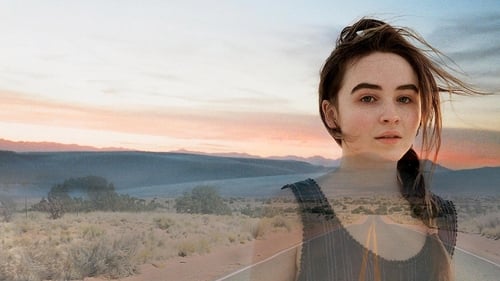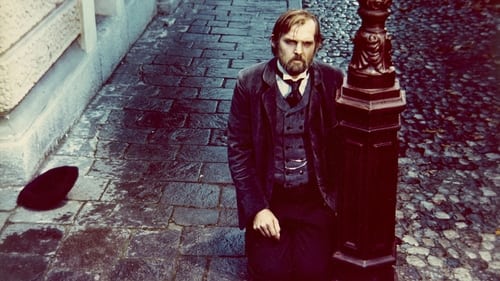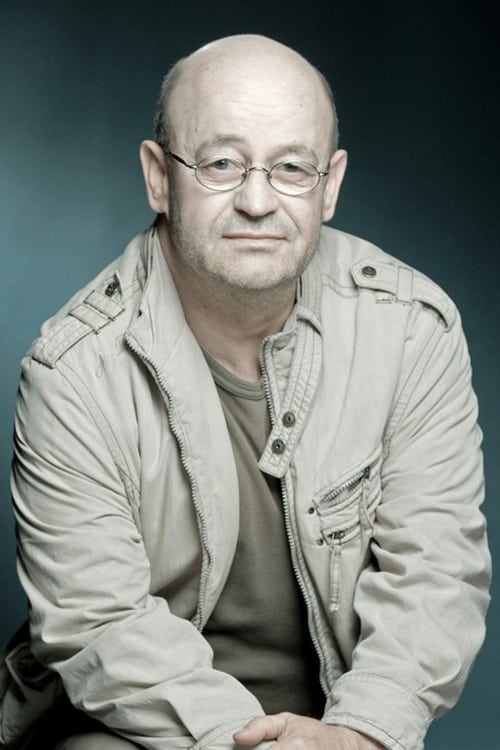The Windhunter (1989)
장르 : 드라마
상영시간 : 1시간 45분
연출 : Filip Robar Dorin
시놉시스
The reconstruction of creation of an influential avantguarde movement called "Novo Mesto Spring" that arrived on Slovenian cultural scene during 1920s. Within this movement worked significant local artists such as composer Mario Kogoj, painter Rihard Jakopic, poet Danijel Bohoric and many others.

미국의 골칫거리로 전락한 국방부의 SOS를 받은 마이클 무어는 펜타곤의 전사가 되어 총성도 석유 약탈도 없이, 다른 나라들의 장점만을 빼앗기로 선언하고 전 세계 침공을 시작한다. 1년에 8주 유급휴가와 13번 월급이 보장된 이탈리아, 프렌치 프라이 대신 미슐랭 3스타급 학교 급식이 나오는 프랑스, 숙제는 구시대적 발상이라는 교육수준 세계 1위의 핀란드, 학자금 대출을 모르는 대학생들이 사는 무상 대학 교육의 슬로베니아, 과거사를 인정하고 반성하도록 가르치는 독일까지. 9개 국을 정복해 나가던 마이클 무어는 진짜 중요한 사실을 깨닫게 되는데...

한물간 예술가가 자살한 것으로 오해받으면서 오히려 작품의 가치를 인정받게 된다는 내용의 현대판 동화이다. 작가의 형 행세를 하며 거짓 상황을 이어가지만, 매력적이고 집요한 여기자와 가까워지면서 모든 계획이 위기에 빠진다. 두 사람은 서로에게 삶의 진정한 가치와 사랑에 대해 일깨워 준다.

Nola grew up living on a van with her father, Clint; two nomads against the world. When tragedy strikes, Nola must confront the reality of life on the road alone, learning to own her grief, her past and her new destination.

Tasmania, 1954: Slovenian migrant Melita abandons her husband and young daughter, Sonja. Sonja's distraught father perseveres with his new life in a new country, but he is soon crushed into an alcoholic despair, and Sonja herself abandons him at the earliest opportunity. Now, nearly 20 years later, a single and pregnant Sonja returns to Tasmania's highlands and to her father in an attempt to put the pieces of her life back together.

Two boys, Kekec and Rozle, come to serve a farmer, with a blind daughter Mojca, as shepherds. As the night falls, the two boys start talking about a woman who lives in the mountains and is supposed to steal children. Her name is Pehta. In the morning, Kekec, Rozle and Mojca go to an Alpine cottage and Kekec promises Mojca that he will find her a remedy for her eyes. As the girl is picking flowers, Pehta arrives and takes Mojca into her cottage. She wants to keep Mojca because of her singing.

Laibach is a Slovenian avant-garde music group associated with industrial, martial, and neo-classical musical styles. They formed on June 1, 1980 in Trbovlje, Slovenia (then Yugoslavia). Laibach represents the music wing of the Neue Slowenische Kunst (NSK) art collective, of which it was a founding member in 1984. The name "Laibach" is the German name for Slovenia's capital city, Ljubljana.

2009, Slovenia. For 30 years, Alija, the miner, has been one of the many Bosnian immigrant workers. Due to the crisis, miners are losing jobs. Alija is sent to check an abandoned mine. His task is to quickly make sure the mine is empty before management sells the company. But in the mine, Alija finds hidden proof of executions after WWII. He is told to stop digging and report the mine empty. He decides to continue, although he is risking his job. Alija discovers thousands of executed people. He informs the police. He found women among the dead. Some of them were civilians, missing persons, just like his sister that was lost in the 1995 genocide in Bosnia. Alija is convinced the victims need to be brought out, identified and buried. But there is no interest in doing that. The mine is proclaimed a WWII military grave and walled in. The dead will stay unburied. Alija loses his job and struggles to preserve his dignity.

An art dealer murders one of his artists in the hopes of increasing the market value of his work.

After being fired, a young car mechanic Đuro gets recommendation to look for another job in a remote village. His new boss is warm, old fashioned and naive - completely opposite from the world he's coming from. The peaceful atmosphere is shaken when Đuro falls for a regular customer's wife.

Charlie, the protagonist of the Slovenian film “Porno Film”, is so dedicated to his porn viewing that his two friends John and Frank jokes that he must have a PhD in pornography by now. Using Charlie’s extensive knowledge of all things porn, the trio sets out to make the “first real Slovenia porn film”, in Slovenian language and everything — except the women in the film are emigrated Russian hookers, and their Slovenian isn’t very good.

A story about a couple from the bottom of the social ladder, about smuggling refugees across borders and other 'suspect' things- it is, first and foremost, an attempt to tell a story about the worst in people, wherever they may be coming from.

In Ljubljana lives a bus driver Stebe. He's a widower. He lives with five sons and a maid Rozi. The boys are very naughty and keep annoying Rozi and, in fact all neighbourhood. One day Rozi in desperation declares that she is leaving them, because she cant stand it no more. And she does leave, although she is fond of the boys. Soon afterwards Rozi's niece Meri comes by, asking if she might stay because she wants to find herself a job in town. Meri is good girl but cannot cope with the kitchen work as successfully as her aunt. But the whole Steb family seems to be charmed by her. Even one of Stebe's own colleagues, Tone, begins to take interest in the girl. Meri likes him too. Stebe's boys feel quite disappointed because of it. But all's well that ends well: in full conspiracy Meri qualifies as bus driver while Rozi returns to the Stebe family.

1905 short film showing people walking down a Ljutomer street after mass.

A film about short-lived Slovenian war of independence.

A story set in a Slovenian village during Italian occupation. Stefuc, a man who has been widowed twice and has four daughters, wants to get married for the third time with Zana, who's already engaged and pregnant with Ludvik. Stefuc tries to separate them away, but realizes that he'll have to marry Hedvika, a nice looking girl who has just returned from Milan. In the meantime, Italian fascist authorities decide to eradicate five Slovenian songs with the help of local traitors.

Alix Cléo Roubaud, a photographer, describes her images to Eustache’s son Boris. An “essay in the shape of a hoax”, Eustache’s last film wittily questions the relationship between showing and telling as it gradually shifts Alix’s narration out of sync with what we see.

A TV journalist making a documentary in a factory finds out that the workers have been on strike and tries to analyze the strike in his film, but is thwarted by the TV company. His failure at his job is interwoven with his failed marriage.

Set in a Slovenian coastal town in WW2, the film tells a story about villagers who help partisans to get rid of Italian, and later German authorities that ruled the town in the last years of occupation.

Two girls who study theatre & drama and their friend photographer decide to rob a bank, using all sorts of their creative force and imagination to implement the idea.

The movie based upon the classical Slovene novel Martin Kačur, depicts the clash between the teacher Martin Kačur and his conservative environment. Due to his progressive ideas, he is transferred to a small town. The village environment is even more depressing than his former surroundings were, as the influence of both the secular and the Church authorities is even greater in the country. Even though Martin meets Tončka and the two of them get married, he gradually becomes a disillusioned and embittered man. In time, when society's strictures become somewhat milder, Martin is transferred to a more friendly environment, but all the injustices he has experienced have already bitten too deep. Unlike his wife, Martin finds it very difficult to accept changes. When his son dies, it seems as though he has lost all his elan and the will to live. Will he be able to go on bringing the light of knowledge to the ignorant masses, or will his ideals be buried forever like a man in a snowdrift?















